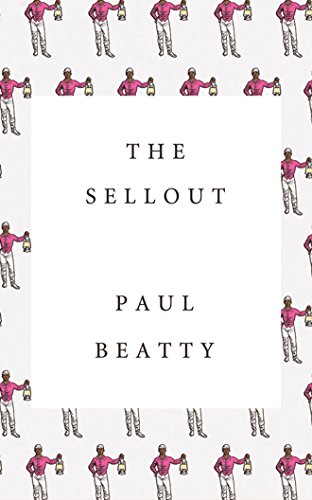
A biting satire about a young man’s isolated upbringing and the race trial that sends him to the Supreme Court, Paul Beatty’s The Sellout showcases a comic genius at the top of his game. It challenges the sacred tenets of the United States Constitution, urban life, the civil rights movement, the father-son relationship, and the holy grail of racial equality: the black Chinese restaurant.
Born in the “agrarian ghetto” of Dickens―on the southern outskirts of Los Angeles―the narrator of The Sellout resigns himself to the fate of lower-middle-class Californians: “I’d die in the same bedroom I’d grown up in, looking up at the cracks in the stucco ceiling that’ve been there since the ’68 quake.”
Raised by a single father, a controversial sociologist, he spent his childhood as the subject in racially charged psychological studies. He is led to believe that his father’s pioneering work will result in a memoir that will solve his family’s financial woes. But when his father is killed in a police shoot-out, he realizes there never was a memoir. All that’s left is the bill for a drive-thru funeral.
Fuelled by this deceit and the general disrepair of his hometown, the narrator sets out to right another wrong: Dickens has literally been removed from the map to save California from further embarrassment. Enlisting the help of the town’s most famous resident―the last surviving Little Rascal, Hominy Jenkins―he initiates the most outrageous action conceivable: reinstating slavery and segregating the local high school, which lands him in the Supreme Court.

Hi-freakin-larious, smart, seething, quality homage to race and what it means to be someone. This book way surpassed my expectations, I had not read a satire like this in quite some time, if not ever. It was filled with humor and real good language. I laughed out loud many times throughout. I certainly learned some history, and learned a bit about he atmosphere of farming and animal owning. The topic of race is analyzed in a fashion unparalleled to any work I’ve read, it’s filled with seething commentary, old school homage, irony, self love/self hate, all around goodness. It was a…
Bad timing for a satiric novel about racism, unless you’re devastatingly good Who writes like this? I asked myself, having been overwhelmed with satiric jabs after about 25 densely written pages. Ishmael Reed? And then why compare Beatty only to another black writer? Was that racist? Woody Allen wrote this densely, stories full of caricatures and outrageous situations, but New-York-Jewish in subject, and then only a few pages long, not an entire novel. Surely Beatty couldn’t keep it up.
Here’s how you should read this book Rather than copy the other very astute reviews, let me just tell you how to read this book. It’s challenging, and it doesn’t always follow the standard dictates of plot, but you may enjoy it more if you know what to expect.